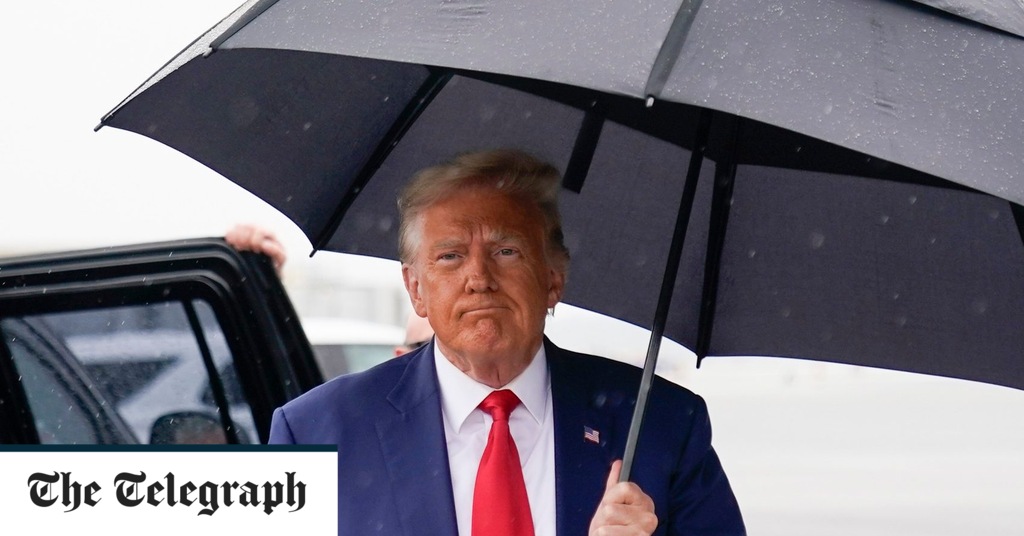The indictment of Donald Trump in the District of Columbia federal court regarding Trump’s post-2020 Election conduct is long on alleging Trump’s deceit but very short on showing criminality.
The 45-page document, like any indictment, is just allegations that must be proven beyond a reasonable doubt in court, and Trump is entitled to the presumption of innocence. Given the shoddy conduct of the Department of Justice and FBI in recent years, the accuracy of the allegations cannot be presumed.
But the allegations in the indictment do reference purported evidence, such as text messages, emails, contemporaneous notes, and testimony. If the evidence cited exists and is not mischaracterized, Trump’s perfidy in alleging election fraud sufficient to have changed the outcome of the election must be taken seriously.
The gravamen of the indictment alleging false claims of election fraud is not new, it has been the subject of countless pundits for years, but many of the details are new. Trump, it’s alleged, engaged in a wide-ranging scheme to falsely claim the 2020 election was stolen, when in fact those closest to Trump at the time were telling him the most significant supposed examples of election fraud were not true.
Trump’s inner circle allegedly were telling him that what he was saying was false, and in some instances, Trump allegedly acknowledged that falsity. Yet he persisted in portraying the election as stolen, and then allegedly conspired with others to advance contrived legal theories to justify the creation of alternate elector delegates in key states.
Even so, the indictment doesn’t provide a compelling case to throw Trump in jail.
An indictment should be more than a political document. Particularly when used against a political opponent of the President in the election period, an indictment should lay out a compelling case for criminality. The DC indictment falls short on demonstrating criminality.
Most of the indictment focuses on speech by Trump that is constitutionally protected. The indictment itself acknowledges that people have a right to assert election fraud, that an election was illegitimate, and that there was election interference, even if the factual and legal grounds were shaky. Certainly Democrats have been denying the legitimacy of Trump’s 2016 election based on false claims of Russian interference, and no one has been indicted for that.
So why indict Trump, other than for political reasons? The core of the indictment is interference with the functioning of Congress with regard to counting the electoral votes. Yet the interference with the count of electoral votes took place by virtue of the riot at the Capitol on January 6, not from any statements by or actions of Trump prior to the riot. By all accounts, Congress was ready to count until the riot.
So if interference with the electoral count was the core criminality, the indictment should charge Trump with inciting the J6 violence. But it doesn’t. It’s a glaring omission, presumably because the DOJ doesn’t have sufficient evidence to prove incitement.
Lacking evidence of incitement of the act – the riot – that actually caused the interruption of the electoral count, DOJ has asserted tenuous legal theories that other acts of Trump were a “conspiracy” to disrupt the count and to deprive voters of their votes. Such flimsy legal theories are destructive to the rule of law when brought against the leading candidate of the opposition political party during election season.
If the feds think Trump incited the January 6 riot that interfered with the electoral count, then charge him with that. But don’t play games with dubious conspiracy and fraud claims disconnected factually from the riot.
At EqualProtect.org, the nonprofit I lead championing equality, we insist that every American receive the equal protection of the laws. That includes Donald J. Trump.
William A Jacobson is Clinical Professor of Law at Cornell Law School, and the Founder and Director of the Legal Insurrection Fondation, which operates the Equal Protection Project




The indictment of Donald Trump in the District of Columbia federal court regarding Trump’s post-2020 Election conduct is long on alleging Trump’s deceit but very short on showing criminality.
The 45-page document, like any indictment, is just allegations that must be proven beyond a reasonable doubt in court, and Trump is entitled to the presumption of innocence. Given the shoddy conduct of the Department of Justice and FBI in recent years, the accuracy of the allegations cannot be presumed.
But the allegations in the indictment do reference purported evidence, such as text messages, emails, contemporaneous notes, and testimony. If the evidence cited exists and is not mischaracterized, Trump’s perfidy in alleging election fraud sufficient to have changed the outcome of the election must be taken seriously.
The gravamen of the indictment alleging false claims of election fraud is not new, it has been the subject of countless pundits for years, but many of the details are new. Trump, it’s alleged, engaged in a wide-ranging scheme to falsely claim the 2020 election was stolen, when in fact those closest to Trump at the time were telling him the most significant supposed examples of election fraud were not true.
Trump’s inner circle allegedly were telling him that what he was saying was false, and in some instances, Trump allegedly acknowledged that falsity. Yet he persisted in portraying the election as stolen, and then allegedly conspired with others to advance contrived legal theories to justify the creation of alternate elector delegates in key states.
Even so, the indictment doesn’t provide a compelling case to throw Trump in jail.
An indictment should be more than a political document. Particularly when used against a political opponent of the President in the election period, an indictment should lay out a compelling case for criminality. The DC indictment falls short on demonstrating criminality.
Most of the indictment focuses on speech by Trump that is constitutionally protected. The indictment itself acknowledges that people have a right to assert election fraud, that an election was illegitimate, and that there was election interference, even if the factual and legal grounds were shaky. Certainly Democrats have been denying the legitimacy of Trump’s 2016 election based on false claims of Russian interference, and no one has been indicted for that.
So why indict Trump, other than for political reasons? The core of the indictment is interference with the functioning of Congress with regard to counting the electoral votes. Yet the interference with the count of electoral votes took place by virtue of the riot at the Capitol on January 6, not from any statements by or actions of Trump prior to the riot. By all accounts, Congress was ready to count until the riot.
So if interference with the electoral count was the core criminality, the indictment should charge Trump with inciting the J6 violence. But it doesn’t. It’s a glaring omission, presumably because the DOJ doesn’t have sufficient evidence to prove incitement.
Lacking evidence of incitement of the act – the riot – that actually caused the interruption of the electoral count, DOJ has asserted tenuous legal theories that other acts of Trump were a “conspiracy” to disrupt the count and to deprive voters of their votes. Such flimsy legal theories are destructive to the rule of law when brought against the leading candidate of the opposition political party during election season.
If the feds think Trump incited the January 6 riot that interfered with the electoral count, then charge him with that. But don’t play games with dubious conspiracy and fraud claims disconnected factually from the riot.
At EqualProtect.org, the nonprofit I lead championing equality, we insist that every American receive the equal protection of the laws. That includes Donald J. Trump.
William A Jacobson is Clinical Professor of Law at Cornell Law School, and the Founder and Director of the Legal Insurrection Fondation, which operates the Equal Protection Project